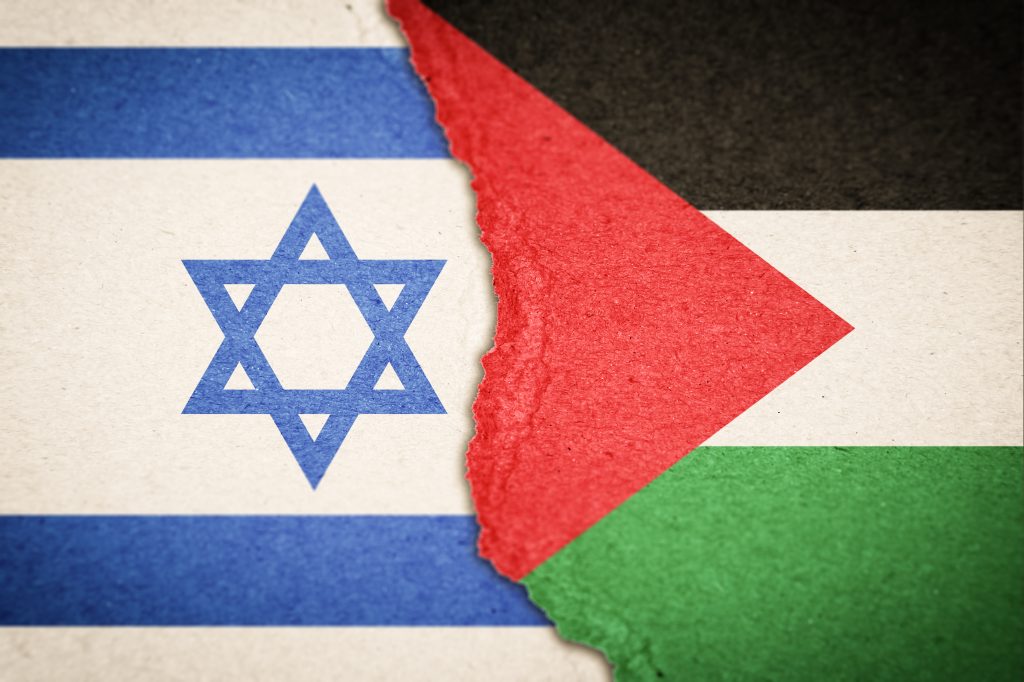IN THE MEDIA
Denying Jewish history will not help Palestinians
May 8, 2023 | Allon Lee

An edited version of this article appeared in The Mercury – 8 May 2023
As Israel justly celebrates 75 years since its May 1948 establishment, it is indeed a tragedy that there is no equivalent milestone for the State of Palestine.
But contrary to Greg Barns (“It’s high time we called out the injustices of colonialism,” May 1), Israelis are not to blame.
Barns’ efforts to analogise the Palestinian story with the dispossession of indigenous Australians fails simply because Jews are not European colonisers who rocked up one day and displaced the native population.
As one of the Middle East’s oldest indigenous peoples, Jews have an unbroken link to their ancestral land stretching back 4,000 years and have always had a sizeable population living there. Moreover, more than half of Israel’s current population descends from Jews who moved there from Muslim and Arab countries, not Europe.
This indelible Jewish presence and history there is repeatedly verified by both archaeology and contemporaneous historical accounts, including Babylonian, Assyrian, Persian, Greek, Roman, Christian and Muslim sources from antiquity through to the present.
Following World War One, when the Middle East was being divided up into today’s modern states, Jewish indigeneity and right to exercise self-determination in their ancestral homeland was formally endorsed by the British, other European Great Powers, the US and even Turkey and some senior Arab leaders.
Indeed, Britain received the Palestine Mandate from the League of Nations in 1920 with the specific remit to facilitate the re-establishment of a Jewish national home there.
Over the next few decades, the Jewish community in Mandatory Palestine invested its energies in laying the groundwork for a modern civil society, while Palestinian Arab leaders unfortunately pursued self-defeating boycotts and terrorism not only against Jews, but against rivals on their own side. During a three-year civil war that began in 1936, the Palestinian Arabs hollowed out their own leadership ranks and anyone who dared to contemplate coexistence and compromise was targeted for assassination.
Despite Barns’ insinuation that Palestinian Arabs were powerless victims of colonisers, in 1937 the British rewarded Palestinian Arab terror by proposing the creation of an Arab state – something which had never previously existed there – on 85% of the land.
Jewish leaders reluctantly accepted their tiny proposed rump state – though they strongly opposed Britain’s later decision to curtail Jewish immigration to negligible levels, even as Nazi persecution of German Jews reached unprecedented levels and the shadow of the Holocaust began looming over Europe.
But Palestinian Arab leaders opposed the proposal if it meant accepting any Jewish state, no matter how minuscule.
Eight years later, Britain announced it was relinquishing its Mandate, and a United Nations Commission recommended partitioning the territory into an Arab state and a Jewish state based on the sensible formula that Jewish-majority areas be part of the Jewish state, and Arab ones the Arab state.
Yet ahead of the General Assembly vote, Azzam Pasha, the Arab League Secretary-General, vowed “a war of extermination and a momentous massacre which will be spoken of like the Mongol massacres and the Crusades.”
After the Partition Plan passed on November 29 1947, the Palestinian Arab leadership launched a mass terrorist campaign against the Jewish community. On May 15, 1948 as the British Mandate ended, five neighbouring Arab countries invaded in an attempt to snuff out the new Jewish state, creating a wider conflagration.
Had the Arab leaders accepted the Partition Plan, a Palestinian Arab state would’ve been established in 1948 – and no Arabs would’ve been displaced.
Irrespective, Barns’ claim that “750,000 Palestinians were driven from their land by Israeli forces” is just wrong.
Many Arabs left because the invading Arab armies said doing so would make it easier to attack the adjacent Jewish communities. Many Arabs fled the fighting of their own accord – without ever encountering any Israeli soldiers.
For Israel, the war was no walkover either. Israel lost a staggering 1% of its entire population and its economy was devastated. The Jordanian army evicted the ancient Jewish community in the Old City of Jerusalem. Dozens of historic synagogues and buildings were destroyed and Jews were prevented from visiting and praying at Jerusalem’s holy sites until Israel captured east Jerusalem during the 1967 war provoked by the Arab states.
After 1967, it would take another 26 years before even some Palestinian Arab leaders agreed to accept Israel’s existence.
Yet since that breakthrough moment in 1993, Palestinian leaders are still rejecting repeated generous Israeli offers to create a Palestinian state and standing invitations to end the conflict through peaceful negotiation in favour of terror and conflict.
That is the real reason why Palestinians have no state.
Groundless efforts to smear the indigenous nature of Israeli Jews will never achieve peace and justice for Palestinians, but only prolong and delay their quest for their own state. That is indeed a tragedy.
Allon Lee is a Senior Policy Analyst at the Australia/Israel & Jewish Affairs Council (AIJAC).
Tags: Israel, Palestinians





